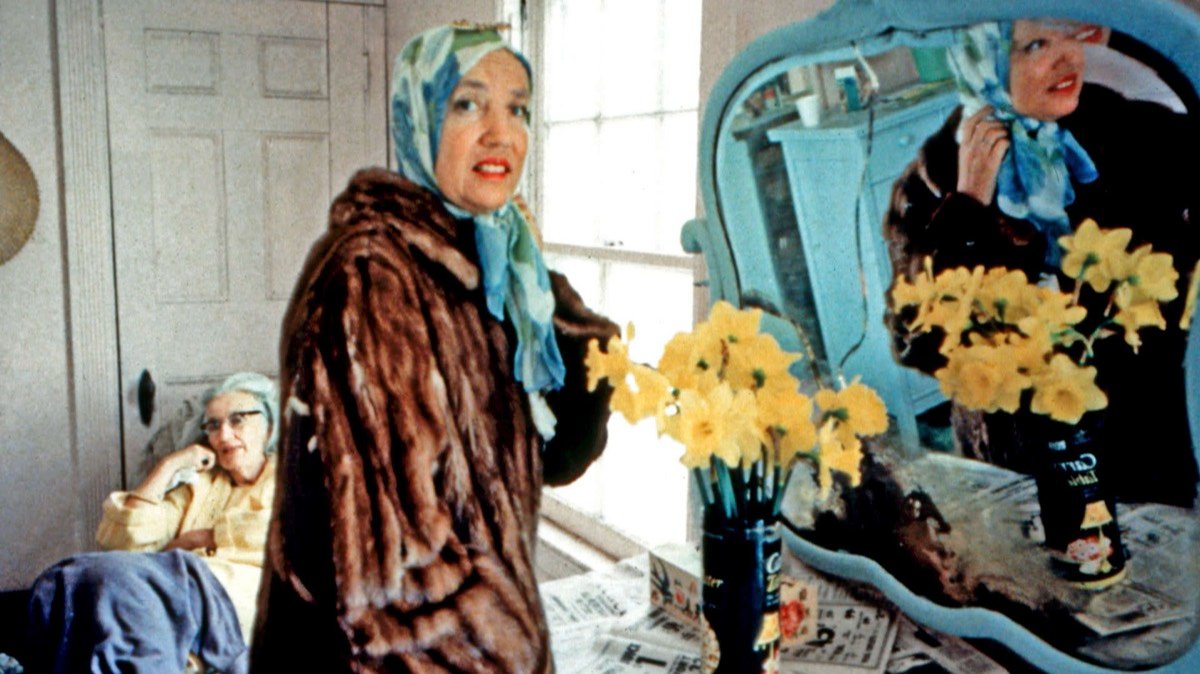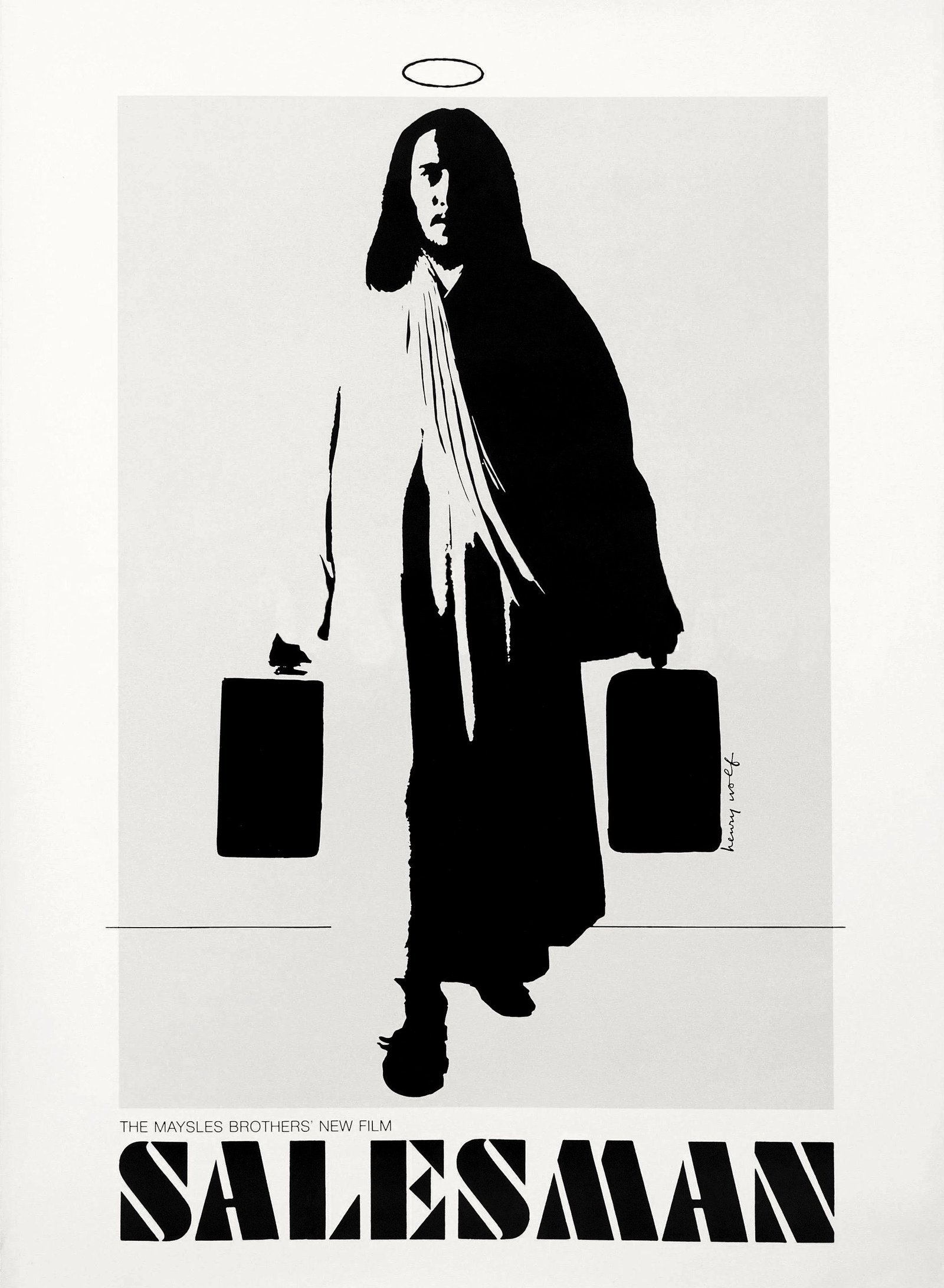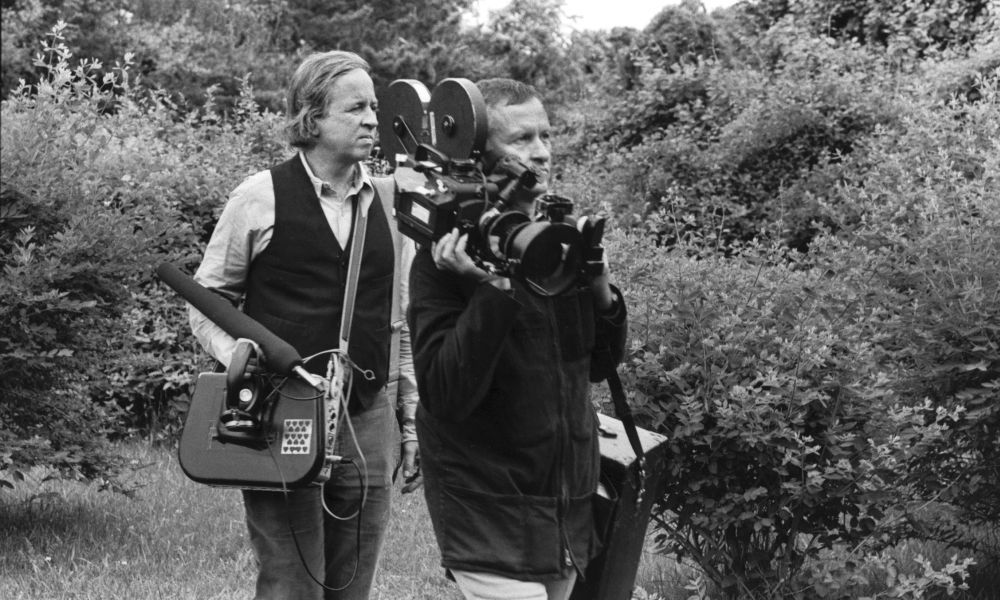"Along with contemporaries D.A. Pennebaker, Ricky Leacock, Robert Drew, and Frederick Wiseman, the Maysles brothers liberated documentary from the presentational format of the newsreel and the talking head. They crafted compelling narratives by capturing real-life drama enacted by real people, from Bible salesmen (in 1969’s Salesman) to the Beales (in 1975’s Grey Gardens) to the world’s greatest rock ’n’ roll band." - Charles Loxton (Slate, 2015)
Albert Maysles & David Maysles
Director / Producer / Cinematographer
Albert Maysles: (1926-2015) Born November 26, Dorchester, Boston, Massachusetts, USA; David Maysles: (1931-1987) Born January 10, Brookline, Massachusetts, USA
Albert Maysles: (1926-2015) Born November 26, Dorchester, Boston, Massachusetts, USA; David Maysles: (1931-1987) Born January 10, Brookline, Massachusetts, USA
Key Production Country: USA
Key Genres: Documentary, Culture & Society, Drama, Music, Biography, News, Short Film
Key Collaborators: Charlotte Zwerin (Director/Editor), Susan Froemke (Director), Deborah Dickson (Director), Ellen Hovde Editor)
Key Genres: Documentary, Culture & Society, Drama, Music, Biography, News, Short Film
Key Collaborators: Charlotte Zwerin (Director/Editor), Susan Froemke (Director), Deborah Dickson (Director), Ellen Hovde Editor)
"Albert and David Maysles have an important place in the history of the documentary for many reasons. They produced a large, varied, evocative body of work in their chosen style, as very active members of their own small company. Despite some severe criticism of their work, they are admired, and probably envied for qualities that Americans value. Directly influential or not on documentaries today, their work is certainly part of the flow of films that aim to show the truth about contemporary problems. While many other filmmakers’ reports and studies embrace large communities, or even whole countries, Maysles productions are about individuals and their concerns, which often illuminate larger aspects of society as well as its general attitudes toward non-traditional behavior." - Lillian Schiff & Rob Edelman (The St. James Film Directors Encyclopedia, 1998)
"Albert Maysles leaves behind a legacy worthy of the art form’s founding. Embracing the French concept of cinéma vérité, the late great documentary director and his equally gifted brother developed their “direct cinema” technique, playing fly-on-the-wall as personalities and events played out before them. There was no agenda and no voice-over narration to provide a specific point of view. The Maysles let their subjects speak for themselves, and in doing so, they uncovered information a formal interview would never provide." - Bill Gibron (PopMatters, 2015)

Grey Gardens (1975)
"Sensitive, intelligent cinéma vérité film makers. Former cameramen for Leacock, Drew, Pennebaker." - Georges Sadoul (Dictionary of Film Makers, 1972)
"With David, his brother, Albert Maysles made “direct cinema” documentaries that were politically and socially impactful upon release and aesthetically groundbreaking for generations of filmmakers to follow… Central to Maysles filmmaking was that “direct cinema,” observational style, one that eschewed formal, back-and-forth interviews and was dependent on being “in the room” for both revelatory events and unexpectedly honest smaller moments. Their shooting captured life as it happened and then, during production, the Maysles would find within their footage moments speaking to larger political and social themes." - Scott Macaulay (Filmmaker Magazine, 2015)
"With his brother David, one of the chief exponents of the "direct cinema" school of documentary filmmaking. The brothers began working as a team in 1957, each having previously been involved in film in very different ways - Al making a documentary on Soviet mental institutions and David working as production assistant on two Marilyn Monroe films. The brothers designed their own portable equipment to help in their goal of capturing the raw, spontaneous flow of experience, without intruding into the situations being filmed. The Maysles were influenced by Robert Drew and Richard Leacock, with whom they had worked on Primary (1960) and often collaborated with Charlotte Zwerin." - The Virgin International Encyclopedia of Film, 1992
"Regardless of subject, all the brothers' films were made without scripts, interviews or predetermined plots. They derived their dramatic strength from the intimate presence of the hand-held camera and the revelations of unguarded dialogue. The films have left a lasting influence on other cinema verité documentarians and on Hollywood directors." - Matt Schudel (The Independent, 2015)
"The sibling duo of Albert and David Maysles were maverick documentary makers who defined the genre in the 1960s, working as an effective team from 1957 until David's death in 1987. Albert has since pressed on by himself, and with a variety of other collaborators." - Wheeler Winston Dixon (501 Movie Directors, 2007)
"I know this sounds like a contradiction but somehow what I do is both objective and subjective. In a way that emotional involvement gets you that much closer to what is really going on, as long as you don’t tailor it with a point of view. My brother and I always agreed on everything, which was unusual. We had the same determination to get much as you could the real thing and to not impose ourselves on the situation." - Albert Maysles (Border Crossings, 2012)
"I think my training taught me above all to be unprejudiced. Psychology was social science and so in a way my work has always combined a kind of scientific approach with art." - Albert Maysles
Selected Filmography
{{row.titlelong}}
Albert Maysles / Favourite Films
L'Avventura (1960) Michelangelo Antonioni, Bicycle Thieves (1948) Vittorio De Sica, Bus 174 (2002) Felipe Larceda & José Padilha, Une Femme est une femme (1961) Jean-Luc Godard, Fitzcarraldo (1982) Werner Herzog, Persona (1966) Ingmar Bergman, Rocco and His Brothers (1960) Luchino Visconti, Salesman (1969) Albert Maysles, David Maysles & Charlotte Zwerin, La Strada (1954) Federico Fellini, Strangers on a Train (1951) Alfred Hitchcock.
Source: Facets (2003)
L'Avventura (1960) Michelangelo Antonioni, Bicycle Thieves (1948) Vittorio De Sica, Bus 174 (2002) Felipe Larceda & José Padilha, Une Femme est une femme (1961) Jean-Luc Godard, Fitzcarraldo (1982) Werner Herzog, Persona (1966) Ingmar Bergman, Rocco and His Brothers (1960) Luchino Visconti, Salesman (1969) Albert Maysles, David Maysles & Charlotte Zwerin, La Strada (1954) Federico Fellini, Strangers on a Train (1951) Alfred Hitchcock.
Source: Facets (2003)
Albert Maysles & David Maysles / Fan Club
Christopher Campbell, Matt Zoller Seitz, Arlin Golden, John Cameron Mitchell, Rebecca Zlotowski, Lukas Dhont, Matt Singer, Alex Gibney, Carol Morley, Jenny Horwell, Petra Seliškar, Sandra Hebron.
Christopher Campbell, Matt Zoller Seitz, Arlin Golden, John Cameron Mitchell, Rebecca Zlotowski, Lukas Dhont, Matt Singer, Alex Gibney, Carol Morley, Jenny Horwell, Petra Seliškar, Sandra Hebron.
"Fan Club"
These film critics/filmmakers have, on multiple occasions, selected this director’s work within film ballots/lists that they have submitted.
These film critics/filmmakers have, on multiple occasions, selected this director’s work within film ballots/lists that they have submitted.


